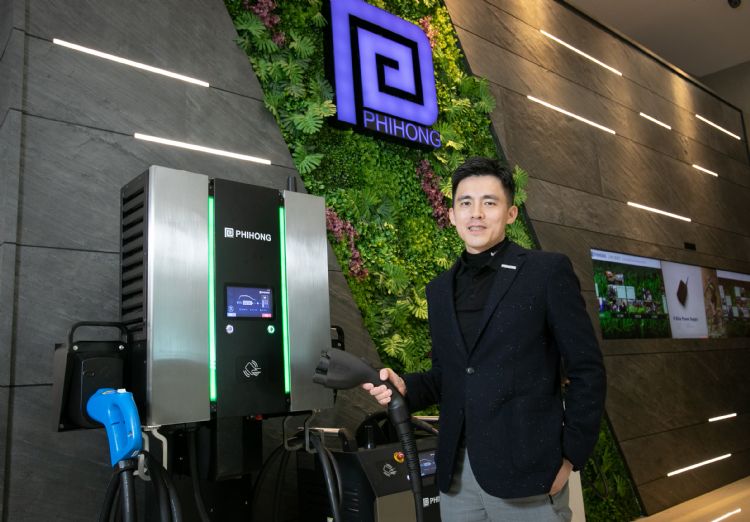In January 2022, Phihong Technology reported revenue exceeding NT$1.14 billion, representing a 20.61% year-over-year growth. Phihong continues to expand its customer base for charging station products, focusing on collaborations with international automakers such as Audi, Volvo, and Jaguar, as well as global and local leaders in the fossil fuel industry. Since December 2021, Phihong has been supplying charging stations to Shell for global distribution, covering regions such as Europe, North America, and Hong Kong and even reaching as far as South America. In 2021, Phihong partnered with Audi to build ultra-fast charging stations around Taiwan. Currently, 70% of Phihong’s business comes from the European and American markets, and the company is committed to further expanding its EV ecosystem infrastructure.
In an interview in early January, Phihong Group General Manager Lin Yang-Hong stated that the group’s 2022 strategy will focus heavily on overseas markets. He cited the recent collaboration with cement industry leader Taiwan Cement Corporation (TCC) as an example, noting that TCC’s subsidiary, Taiwan Cement Europe Holdings (TCEH), acquired Italy’s ENGIE EPS SA in July 2021, positioning itself as an international EV charging station supplier. Lin views this as a promising opportunity to develop business abroad.
Lin Yang-Hong, General Manager of Phihong Technology Group. Photo by Fu Shi-Min.
Lin remarked that the “soul of electricity lies in the global market.” He explained that while Taiwan could be a testing ground for EVs, its small market makes it an ideal place to refine technologies. Once Taiwanese manufacturers have gained sufficient experience, they aggressively pursue overseas expansion. For Phihong, now is the time to enhance its global presence, with a primary goal of expanding its overseas markets.
Phihong is employing two main strategies to support its global expansion:
First, Phihong has integrated into Shell’s supply chain, the world’s second-largest fossil fuel company, and has become a global supplier of charging equipment for Shell. Shell has shifted its focus toward renewable energy in recent years, transforming its gas stations in the UK into multi-functional charging hubs to expand the EV charging network.
Second, Lin explained that collaboration with car manufacturers is not the primary strategy. He asked, “Which car company builds gas stations or charging stations? So why would a car manufacturer focus on charging infrastructure?” The main goal of automakers is to sell vehicles, and having accessible charging is crucial for EV adoption. When asked about Phihong’s primary customer base as it enters the global market, Lin and Phihong’s EV Energy Business Group Director Yang Wei-Chieh responded, “We are currently in discussions with multiple companies across various industries.”
This approach highlights customization as one of Phihong’s key advantages. Yang explained that Taiwanese manufacturers have expertise in Original Design Manufacturing (ODM) and Original Equipment Manufacturing (OEM), which also enables customization. Phihong initially produced customized charging stations for electric bus manufacturers and held a 90% market share with electric bus maker Master Transportation before Master was acquired by Thinktronics, which subsequently developed its own charging stations. Phihong discovered a successful strategy through customization, also serving as an entry point into the passenger EV charging market.
In recent years, Phihong has collaborated with software startup Noodoe to develop tailored charging stations for well-known amusement parks in North America, including Disneyland and Universal Studios.
Since launching its electric bus charging systems in 2013, Phihong has gradually entered the international passenger EV charging station market, transitioning from customized solutions to standard products. Nine years later, Phihong stands as Asia’s first provider of ultra-fast 360kW charging solutions. It aims to make a mark in the EV ecosystem by offering customized solutions for diverse locations and aggressively expanding its global footprint, solidifying its position as a leading EV technology provider from Taiwan.
